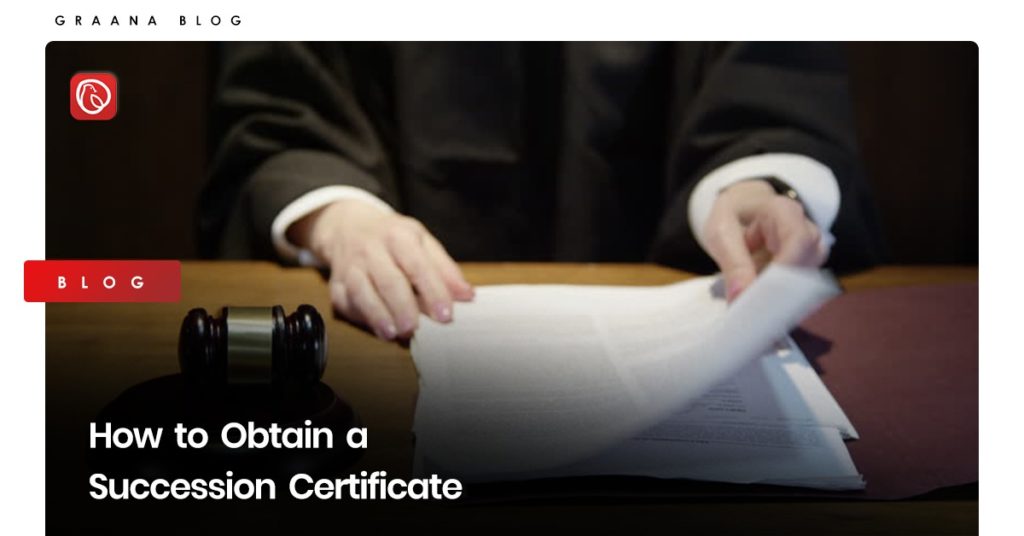Real estate or property is one of the most heavily invested sectors in Pakistan. As of 2020, Pakistanis have invested an estimated 421 billion PKR in urban real estate, 305 billion PKR in rural residential property, and 328 billion PKR in agricultural land. It is therefore important to understand what laws govern these properties and what property rights are given to their owners.
Graana.com, Pakistan’s smartest property portal, takes a look at the different types of property in Pakistan and the legal rights of property owners.
Definition of Property

In Pakistan, the terms ‘land’ and ‘property’ are frequently interchanged. However, property and land are defined differently in regulations. Property in Pakistan refers to any tangible or intangible asset that can be possessed or vested in an individual. The term ‘tangible’ refers to any property that exists physically. When a property does not exist physically, such as patents or intellectual property rights, it is deemed intangible.
The term ‘land’, on the other hand, refers to immovable property. As a result, we can deduce that ‘land’ is a type of ‘property’ that belongs in the tangible category.
Hence, we can conclude that the legal definitions of ‘property’ and ‘land’ cannot be used interchangeably and must be defined separately. Property in Pakistan is further divided into immovable and mobile properties.
Immovable Properties
Immovable property, according to these definitions, includes land and benefits gained from that land; anything attached to this piece of land; lights; ferries; rights to ways; fisheries; and hereditary allowance.
Moveable Properties
‘A Guide on Land and Property Rights in Pakistan’, published by UN-Habitat, notes that standing timber, along with crops grown from a piece of land, grass, fruits that have grown or are to grow in the future, and the machinery attached to a piece of land will be considered as moveable property. In essence, the document states that moveable property is anything vice versa of immovable property.
Right to Owning Property
Property rights are defined and safeguarded by the Pakistani Constitution through a variety of laws, rules, and regulations. Different property rights are defined and protected by specific and special laws. Pakistan’s Constitution contains four articles that deal with private property rights. Articles 23, 24, 172, and 173 are among them.
Land Records

Firstly, Land records and property rights enforcement in Pakistan are inextricably linked to the ‘Revenue Collection’ system. Revenue authorities have been enforcing property rights and compiling and maintaining land records since colonial times. The provinces’ various revenue agencies are in charge of land administration and property rights enforcement.
These provincial revenue departments are “with whom everyone needs to deal about any subject relating to or arising out of land”. The system is devolved, however, so that land records are maintained and modifications are made at the sub-district level, i.e. at the village and tehsil levels. The formal levels of this devolution are depicted in the illustration above.
This method of land record keeping and administration has been in use since the mid-18th century. The Law Revenue Act of 1967 is the most easily identifiable modern law from which this system was derived. With minor revisions, all provinces and regions in Pakistan have accepted this law and enacted corresponding revenue and administrative laws.
Property rights enforcement relies heavily on land records. They can’t be enforced if there isn’t a system in place to keep track. Not only are land records necessary for tracking and registering land ownership, but they are also essential for revenue collection.
Aspects of Land Record System in Pakistan
Some fundamental aspects of an effective land record system are:
- It should keep track of the landholding’s measurement, identification, partition, and delineation.
- It must be able to recognise and distinguish between cultivable and non-cultivable ground.
Graveyards, pasture areas, community buildings, and other common lands in a village must be appropriately designated. Land ownership and transfer of ownership information must be kept up to date. Every 25 years, a comprehensive Settlement Operation is held in Pakistan to update the ‘Record of Rights’. Following the Settlement Operation, ‘jamabandi’ is held every four years to compile a mutation register known as ‘intaqalat’.
Land revenue remains a substantial source of tax revenue, and a well-established system of land value assessment exists. The land records are handed over to the District Collector once they’re finished. The disadvantage of settlement operation is that it takes a long time to complete, taking an average of three to four years in only one area.
Main Laws Regulating Property in Pakistan

The section below summarises the laws that govern property rights in Pakistan.
Land Revenue Act of 1967
The Land Revenue Act of 1967 has given each province its own set of legislation that governs the records of rights and their changes. This law has been enacted by all provinces, with minor modifications.
The 1882 Transfer of Property Act
The Transfer of Property Act 1882, is a law that broadly describes and regulates property transfer (lease, sale, mortgage, and so on).
1908 Registration Act
The Registration Act of 1908 is a general law that governs document registration. Whenever property rights are transferred or modified, the updated documents have to be registered (especially in metropolitan areas).
Local and Special Laws
Housing societies (whether private or public), cooperative societies, mutual societies, and cantonment boards, for example, are governed by local and special regulations. Some of the laws listed above are applicable in rural areas, while others are applicable in metropolitan areas. The laws governing immovable property in rural areas differ from the laws governing immovable property in urban areas on a general and practical level.
Transfer of Property

The Transfer of Property Act 1882, is Pakistan’s fundamental law governing property transfer. The transfer of immovable property (land) in Pakistan is governed by this law, as well as the Land Revenue Act of 1967 and the Registration Act of 1908. Depending on whether the land to be transferred is ‘country’ or ‘urban,’ the procedures involved vary.
Transfer of Property in Urban Areas
The Land Revenue Act of 1967, the Transfer of Property Act of 1882, and the Registration Act of 1908 are the primary rules that govern the transfer of property in metropolitan areas.
Under the Registration Act of 1908, all transactions of immovable property in metropolitan areas must be recorded. For formal property records and tax purposes, this registration is required. Therefore, the concerned sub-registrar, which is usually the tehsildar office, handles this registration. After this process is completed, the tehsildar’s office modifies the revenue records. In metropolitan regions, the most prevalent method of transferring immovable property is by sale/purchase. The following are the steps involved in this process:
- Firstly, if one is not already in possession, obtain a ‘fard’ for proof of ownership from the respective office in the revenue department.
- Secondly, to draft the selling deed/contract, use the required stamp paper. This is usually done with the help of professional deed writers and/or lawyers.
- Thirdly, make the payment of applicable stamp duty, capital gains tax, and any other related costs.
- Fourthly, the sale deed is registered with the sub-registrar in the jurisdiction where the property is located.
- Lastly, in the revenue record, the process of mutation completes in the sub-registrar’s office.
Transfer of Property in Private Housing Society
Private housing societies, cooperatives, and cantonments cover a considerable fraction of the total land in Pakistan’s urban centres. In these areas, parties involved in land transfers (including sales and purchases) do not always follow the procedures outlined above. This is because, according to official revenue records, the housing society or cooperative owns all of the land. Land and other immovable property owners are granted ‘allotment letters,’ which serve as confirmation of title and possession. When properties are transferred, these allocation letters are used. Although sale documents are drafted and signed on stamp papers by all parties concerned, the full transaction can be completed in collaboration with the relevant housing authority’s office without the need to visit the sub-office registrar’s or any other provincial revenue system agency.
Transfer of Property in Rural Areas
The Land Revenue Legislation of 1967, its provincial variants, and land rules adopted according to the aforementioned act are the primary laws that regulate the transfer of immovable property/land in rural areas. Furthermore, the Transfer of Property Act of 1882 adds to the preceding statute by defining terms like “property,” “transfer,” and “applicable restrictions and circumstances”.
- Firstly, any person (via their legal guardian) can inform the patwari of their choice to transfer their property rights (as a result of a sale, a mortgage, a gift etc.). If such a transfer has already occurred and the owner has passed away, the patwari must be notified within three months.
- Secondly, the patwari then must record the intention to transfer rights, as well as provide copies of the entries. Furthermore, the patwari is required to notify the respective union council in order for what has been reported to him/her to be made public. The patwari is then responsible for taking the case to the tehsildar office so that the mutations register entries are amended.
- Lastly, a revenue officer at the concerned tehsildar’s office (usually a tehsildar or naib-tehsildar) is responsible for checking, verifying, and accepting or rejecting the transfer. In this regard, the office of the tehsildar can reject any transfer besides the transfer of property in inheritance, the transfer is done through a registered deed, or has the approval of a court of law. Get to know foreclosure laws in Pakistan.
Procedures at the Tehsildar’s Office
Meanwhile, the tehsildar’s revenue officer is responsible for noting down the details of the rights being transferred, obtaining the signature of the person whose rights are being acquired, and ensuring that the person is correctly identified by two witnesses, who are usually village headmen (colloquially known as numberdar or lambardar) or members of the concerned union council. Before transferring the register is updated, such a planned transfer should ideally be checked by an open assembly of landlords from the region. In most rural locations, property transfers are not required to be registered separately.
Reforms in Land Record and Management

Lastly, in recent years, there has been a movement in all provinces and federal territories to digitise all land records and use technology to build more effective property management and transfer processes.
The Punjab Land Record Authority Act 2017, for example, has established an effective system. In each tehsil, ‘Arazi Record Centres’ are being established, which will hold digitised records of all land ownership. In places where these centres are already operational, the methods may change slightly from those detailed in this short. Despite this digitisation, the previous system for record-keeping and record-keeping maintenance continues to operate in parallel. In the event of a discrepancy, it frequently takes precedence.
To read more about property laws, visit our blog.
Sources
- A Guide on Land and Property Rights in Pakistan
https://cms.ndma.gov.pk/storage/app/public/publications/December2020/oeBNJ57eoaK7VbjALelV.pdf
- Property Rights in Pakistan: Laws, Regulations, Transfers & Enforcement
https://pide.org.pk/wp-content/uploads/kb-063-property-rights-in-pakistan-laws-regulations-transfers-and-enforcement.pdf





In Pakistan, there is a lack of education regarding property laws. we should have to get aware about the property for that one of the good option is property guide or property manager. Graana is providing its best services in real estate and educating people.